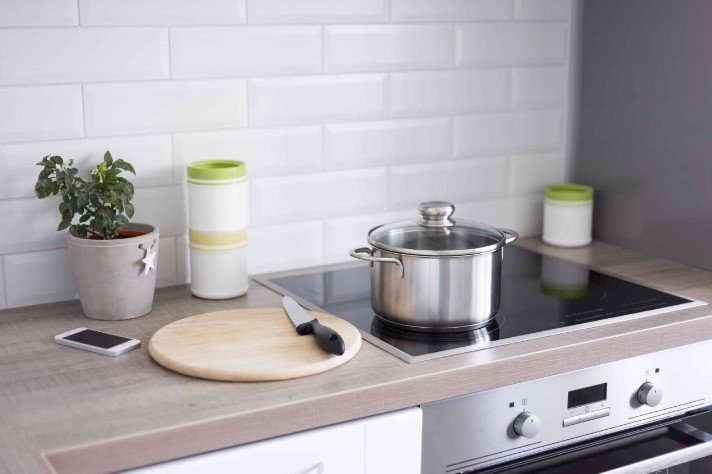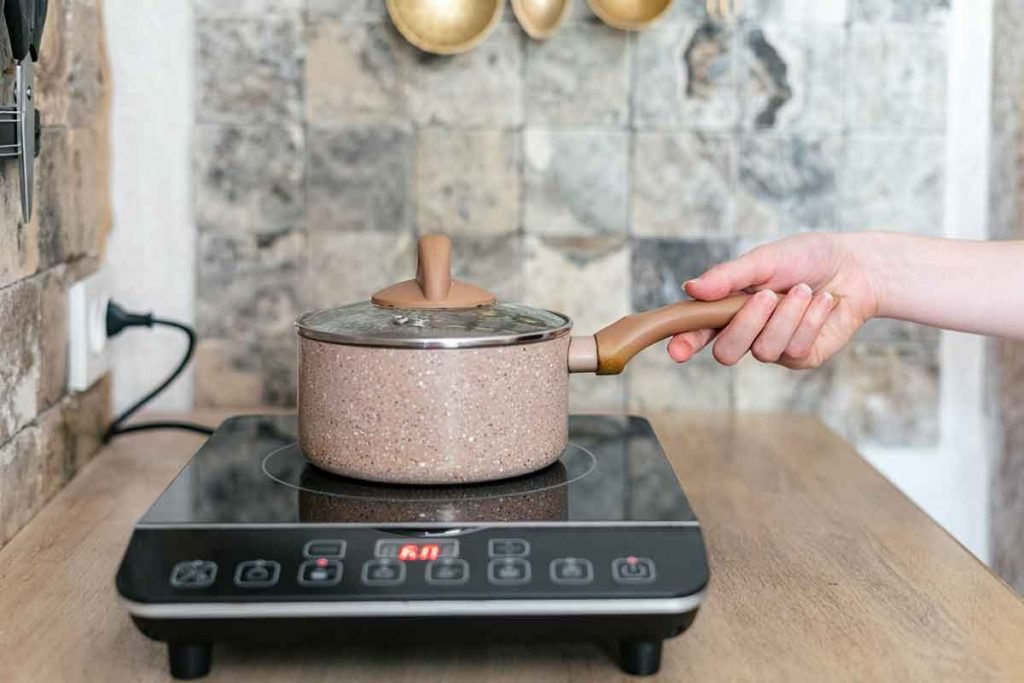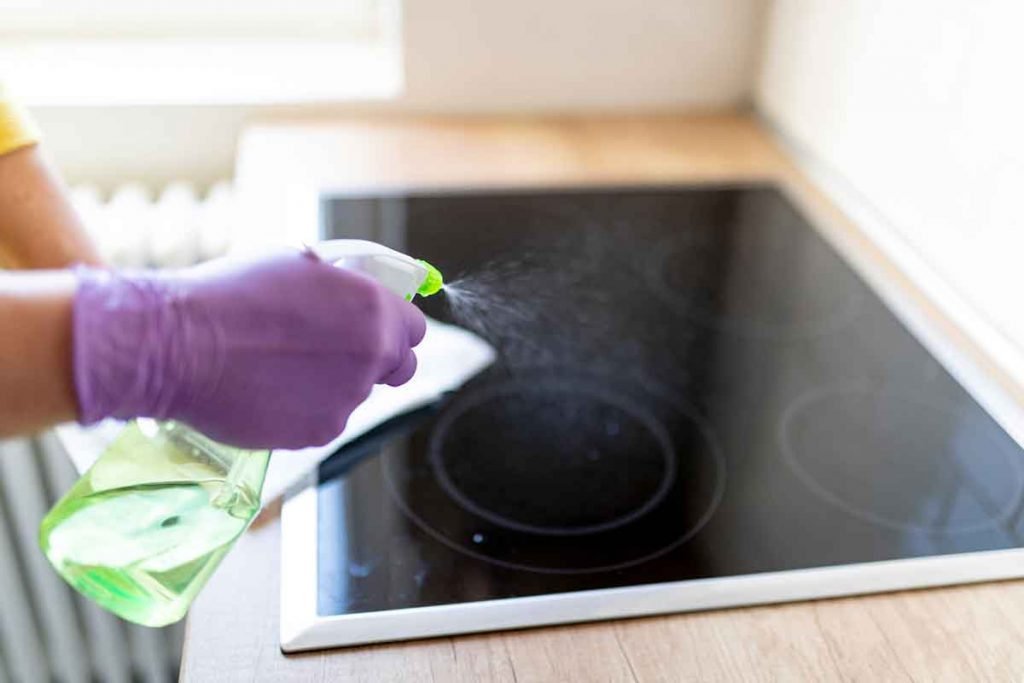You recently upgraded your kitchen with a new induction cooktop. Everything was going great….until you suddenly noticed an unpleasant burning smell wafting from your cooktop. You check and realize nothing is actually burning or overheating. So where is this smell coming from, and should you be concerned?
It’s quite common for induction ranges to emit a burning odor even when operating normally. Knowing what causes this smell and what steps to take will help you diagnose if there is an actual problem or if there’s nothing to worry about.
Causes for the Induction Cooktop Smelling Like It’s Burning
if you begin noticing your new induction cooktop kicking out burning odors, first check for true overheating issues. Then tackle cleaning cooked on debris and ensuring proper ventilation to mitigate these heating smells.
Read on for more details on these leading causes and steps to prevent or resolve.
1. Metal Overheating
The alternating magnetic field vibrating metals to generate heat reaches extremely high frequencies. This ultra-rapid vibration against the glass surface essentially “excites” metals to their maximum temperature threshold quickly, which can emit a hot or burning smell briefly despite no actual burning occurring.
2. Residue Burn Off
If any oils, grease, or food debris spilled onto the induction surface from prior cooking, the high heat generated from the metals below can burn off the residues. These food remnants essentially get “branded” onto the cooktop, creating lingering burning odors. Sugary sauces are common culprits.
3. Internal components Heating
Within your induction unit, internal transistors, circuit boards, and wiring heat significantly from normal operation. As these parts exceed 160°F, hot electronics smells get produced and emitted through ventilation systems.
What You Can Do – What’s the Fix?

If you notice a burning smell from your induction cooktop, first turn off the unit and inspect for any actual signs of burning on the cooking surface, pots/pans bottom, or exterior. Allow it to cool then thoroughly clean the glass surface by hand rather than abrasive dishwasher detergents.
Use a cooktop cleaner and conditioner product to help lift burned-on debris and food remnants. Then re-season your pans to offer a protective barrier going forward to minimize sugary foods and oils bonding to the glass.
Lastly, make sure your induction cooktop has proper external ventilation both while cooking and especially just after use while internal components start cooling down. Routine cleaning both inside and out will minimize concerning odors.
Conclusion
While that burning smell originating from your new induction range can be alarming at first, rest assured in most cases it is completely normal. Just be diligent about keeping both the actual cooking surface and internal ventilation ducts clear of clutter and debris buildup. Properly clean and season your magnetic cookware to prevent exacerbating food residue from bonding to the delicate glass. With a little TLC, that induction smell should dissipate letting you get back to revolutionary cooking results!
Common Questions
Why do I smell burning or plastic from my induction hob?
The high-frequency vibration of metals against the glass paired with rapidly heating internal electric components can emit unpleasant hot smells. This is common upon initial operation or when overheating pans/liquids bond debris onto the cooktop.
Is it normal for induction cooktops to smell?
Yes, all induction units undergo significant internal heat generation from their circuitry leading to hot plastic/electronics smells venting out. As long as external airflow isn’t blocked and no actual overheating has occurred, smell alone is normal.
How do I remove burned-on residue from my induction cooker?
Allow the surface to fully cool after noticing smelly residue or debris. Use a razor to gently lift any solid matter. Apply a cooktop cleaner and let it sit for 5 minutes before scrubbing with a soft sponge in circular motions. Rinse and wipe away the cleaner with a dry towel. Avoid using harsh dishwasher detergents.
What does it mean if my induction stove is emitting black smoke?
Black smoke billowing from your induction likely signals an internal electrical problem overheating components leading to burning. Shut off the unit immediately at the breaker and refrain from use until a technician inspects for faulty wiring.
Can the smell from an induction indicate a dangerous situation?
Yes, if you detect a strong plastic burning smell paired with smoke, loud popping noises or flashing error codes, a component could be severely malfunctioning. Discontinue use ASAP and consult an appliance repair expert to inspect for damage before running again.



